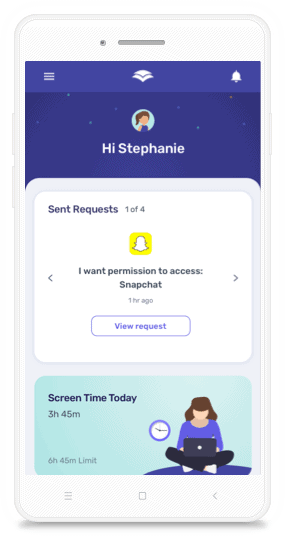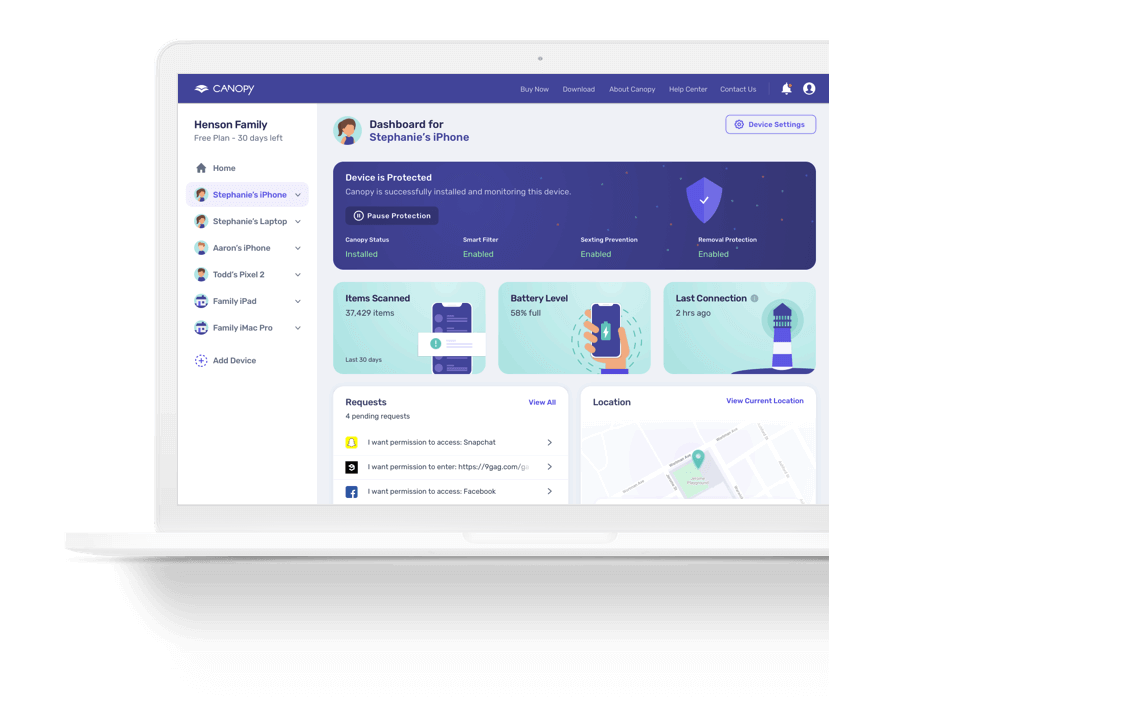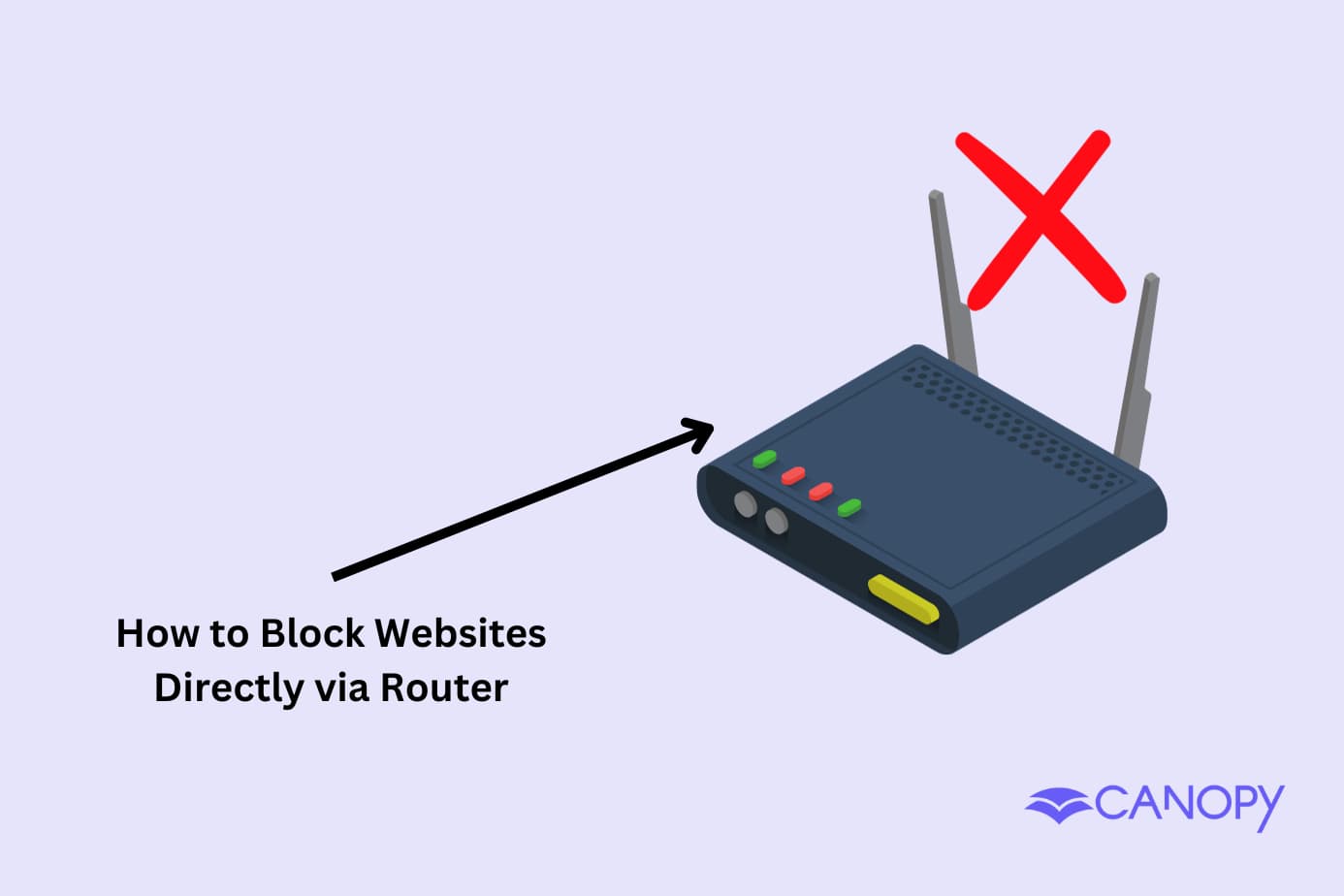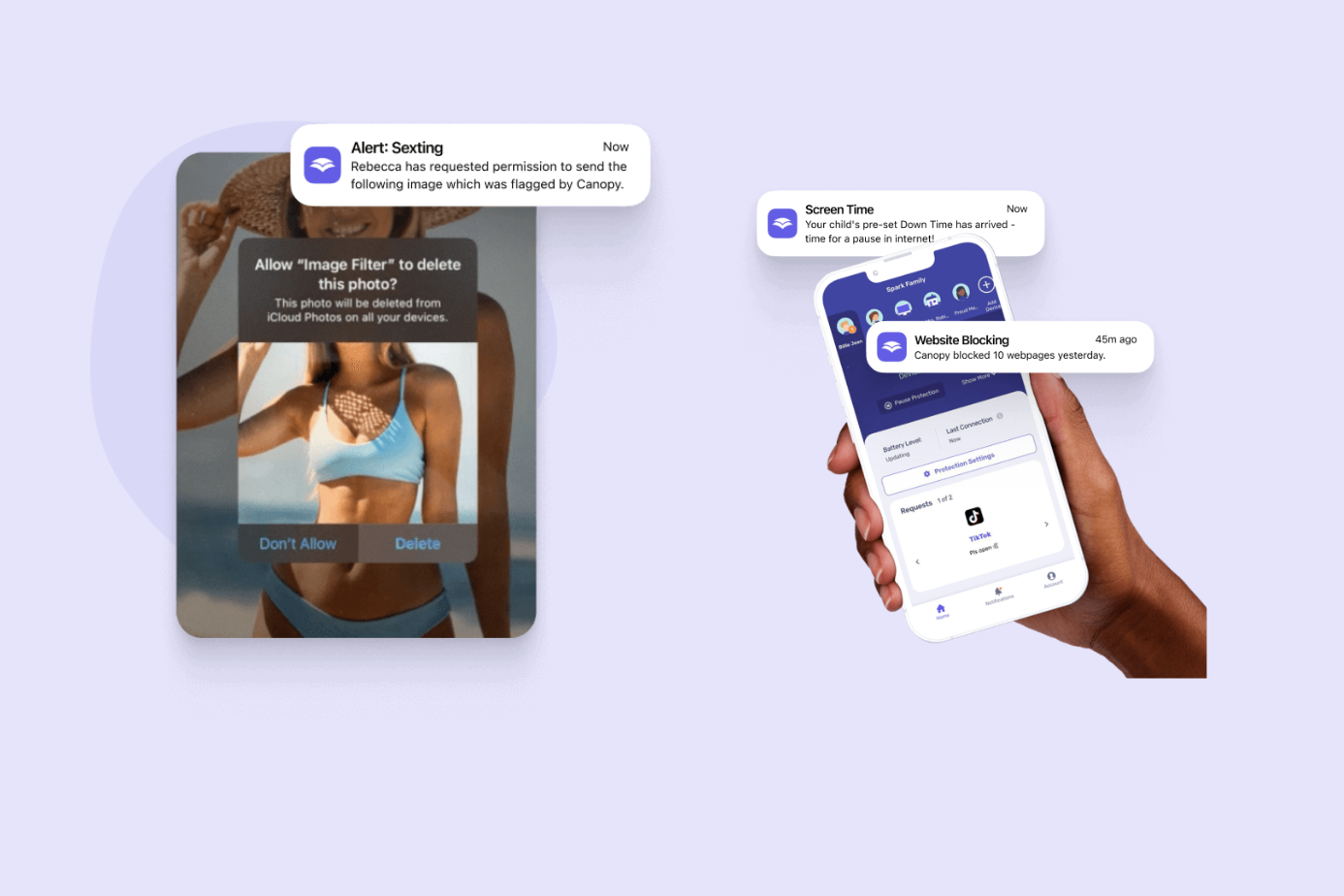Kids today have to maneuver through a minefield of digital dangers that we as children never had to contend with. From pedophiles to sextortion to cyberbullying to exposure to explicit content, the list goes on and on. Most informed parents realize that their children cannot be given a standard smartphone at a young age and left unattended. They will generally begin with devices meant for children that do not have internet access before moving on to a regular phone, but they will at least consider adding protection to that phone in the form of parental controls.
Parental controls can typically be implemented through an external app or through settings on your child’s apps, especially social media apps. However, we want to educate you today on cell phone plans with parental controls. We will focus on the “big 3” phone plan providers – AT&T, T-Mobile, and Verizon.
We will go through an overview of each phone plan’s parental controls, including the pros and cons. Finally, we will discuss whether or not their solutions are adequate for you as a parent who wants to protect your child online.
Verizon Parental Controls
Parental controls on Verizon come in two packages – one free, and the other paid. The free version includes location tracking with SOS alerts, a single location/boundary alert, driving insights for your own phone, and call/text activity if you have a Verizon phone plan.
Verizon Family Plus parental controls requires a monthly fee of $14.99, and in addition to the free features, it offers the ability to set multiple location/boundary alerts, driving insights for your family, roadside assistance, screen time management, content blocking and monitoring, and internet pausing.
Pros
Parental controls on Verizon are pretty comprehensive, and it’s great that there is a free option for those who feel that it is sufficient for their family’s needs.
Cons
Smart Family is available to Verizon customers, and others may need to pursue other solutions. In addition, it protects phones but not other devices. The paid version is quite expensive. Also important to note – their content filtering is based on categories and seems limited.
T-Mobile Parental Controls
T-Mobile‘s FamilyMode will monitor a child’s phone for $10 a month. There are some of the usual parental control features, as well as a few additions. TMobile parental controls include daily internet limits, blocking specific websites and apps, internet pausing, filtering explicit content, monitoring online activity, and location tracking.
Pros
Some features are not standard – such as bonus screen time rewards and the ability to instantly pause internet access. These are welcome additions to the usual array of parental controls.
Cons
$10 a month for one phone is quite expensive. It does not include the ability to protect other types of devices, which can be added on for a one-time fee of $20, but that will only protect devices over your home’s wifi and will not protect your kids when they are out and about.
Content filtering seems quite limited.
AT&T Parental Controls
AT&T parental control capabilities are available through its Secure Family service, which costs $7.99 per month. Secure Family’s features include location tracking, geofencing, and location history. Additional features include internet pausing and time limits, app usage monitoring, and filtering explicit content and websites.
Pros
AT&T’s service is slightly cheaper than Verizon and T-Mobile, and includes more comprehensive location-tracking features and emergency SOS alerts. The ability to manage up to 10 family members is a benefit for larger families.
Cons
Like Verizon and T-Mobile’s main parental control options, Secure Family covers phones exclusively. Content filtering capabilities also appear to be limited.
Canopy Parental Control App
The three phone companies’ parental control options offer a lot to parents who want to keep their kids safe online. However, like most parental control apps, they don’t have very sophisticated abilities to filter and block explicit content – and if your kid has a phone with internet, this feature is a must-have. That is where Canopy comes in.
The Canopy Parental Control App includes features like location tracking, app blocking, and screen time management, but content filtering is where it really shines. Using patented AI developed over 15 years, Canopy is able to detect nudity (and even partial nudity, depending on your settings) on otherwise acceptable websites and social platforms, before it reaches your child’s screen!
Another big bonus – the big 3 phone companies’ parental controls are mainly used to protect children’s phones, but Canopy covers all devices – Android, iOS, Mac, Windows, and Chrome. For a comprehensive online safety solution for your family, try out Canopy today. Click here for a free trial!
FAQs on Parental Controls
How to put parental controls on iPhone?
The Canopy Parental Control App can be used to filter content on iPhones, as well as other devices. It includes other parental control features as well.
How to put parental controls on iPad?
The Canopy Parental Control app works on iPads, in addition to iPhones, Androids, and other devices! Download Canopy and install it on your child’s iPad.
How to set up parental controls on Android?
Canopy offers content filtering, screen time management, and other parental control features for Android phones. Start your free trial today.





